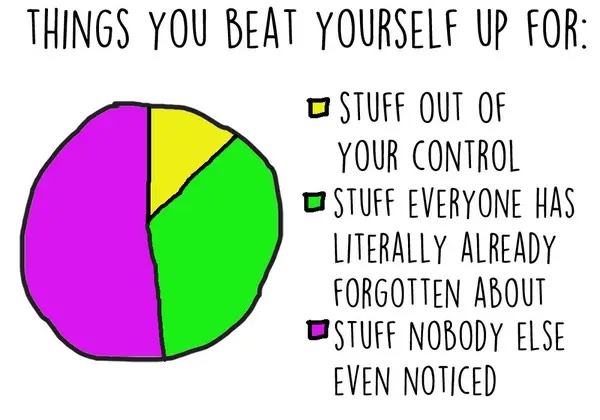Imposter Syndrome is rampant. When it was first introduced in 1978 it was thought to mainly affect women but soon it was proven to be equally distributed between men and women with 70% of us suffering from it at some point in our lives. I suspect that percentage is low.
The research suggests that one of the causes is demanding, overly protective parents. This makes sense because this type of parenting can take away your self confidence and agency. Brené Brown loves to say that struggle is what builds confidence and resilience. If parents protect us from our struggles we do not feel capable to take on life’s challenges.
In my work with clients and from my own observations I have come up with another compelling reason that some of us suffer from Imposter Syndrome. One of my clients is tormented by the voice in her head that says in a mean tone, “You do not know what you are doing, you are not keeping up to date in your field, you are going to do more harm than good.” I ask her, “I wonder what job this voice has?” Since Imposter Syndrome is not a mental illness I know that this active, instructive, mean voice is trying to help in some way.
This is one of my favorite parts of my work. Like a puzzle, I know that everything we do is for some ‘good’ historic reason. We are always trying to protect ourselves, coach ourselves, move ourselves forward, albeit often in misguided, out-of-date ways. As we spend time with this question — what is the purpose of this voice? — it becomes very clear. This person was loved by her parents but lacked parental oversight and guidance. She was such a capable little girl her that her mother often left her unattended. Her little one became her parent, guiding and instructing her. But when we examine these guiding voices together we find that they are about as accurate and mature as a five-year-old.
About 25 years ago, I remember my therapist excavating with me a voice that seemed to be an older sister I had created. Being an only child, I lacked any role models and perhaps also parental oversight while also having perfectionistic, over-protective parents. You can have parents that are too extreme on both sides of the continuum! This ‘older’ sister was not very old. If I was 5 years old she was perhaps 7. The instructions, and coaxing and berating she provided was not very wise. In this lack of clear parental guidance it is fascinating how we fill in the gap. And then these voices become so unconscious, like background noise. It takes a lot of work even to hear them and then confront them.
In the Mindful Self Compassion Class I am facilitating this year we are all finding strong, historic beliefs and imprints from our families and culture that scream in one way or another “You are not enough, something is wrong with you!” I have worked with this material for years and surprised myself by finding one of these background voices just last week.
For my upcoming birthday I went to my favorite lingerie store and splurged on two beautiful pairs of underwear. I wore them both with great pleasure and then put them in the wash and I returned them to my drawer. When I went to get one to wear I noticed one was missing. I looked deeper in my drawer and another drawer and still couldn’t find them. Here is what I said to myself in a very mean, stern tone of voice; “Wendy see how you are? You ruin everything that is beautiful and special! You do not deserve nice things!” Wow, I felt out of sorts for the rest of the day.
On my birthday my husband presented me with a full array of this special underwear in every available color. It turned out that he had taken the one pair I could not find to the store to make sure he got the correct style and size. Maybe I do deserve nice things and I actually do know how to take care of them. But I can see photos of myself as a little girl, maybe 3 or 4 years old, all perfect in my fancy Easter dress, little white shoes and socks that I surely defiled soon after the photo was taken, shattering the perfection my mother had tried to create. Her exasperated and mean voice lives on in me, telling me that I do not know how to take care of nice things, that I ruin everything. Doesn’t every little one do that? Get dirty, spill things, tear things. Poor little Wendy, I think. She was expected to be big when she was little.
These expectations for little ones to be older, and bigger than they are, beyond their developmental milestones, seems a huge contributor to imposter syndrome. We were imposters trying to pretend we were something we were not. Trying desperately to fit our parents expectations and avoid shame and humiliation. It started so young the pain of it seems so normal. But it is not.
As I finished writing this blog on Imposter Syndrome which seems to pour out of me, my husband asks, “Are you sure you know what you are talking about?” He is such a funny guy!


